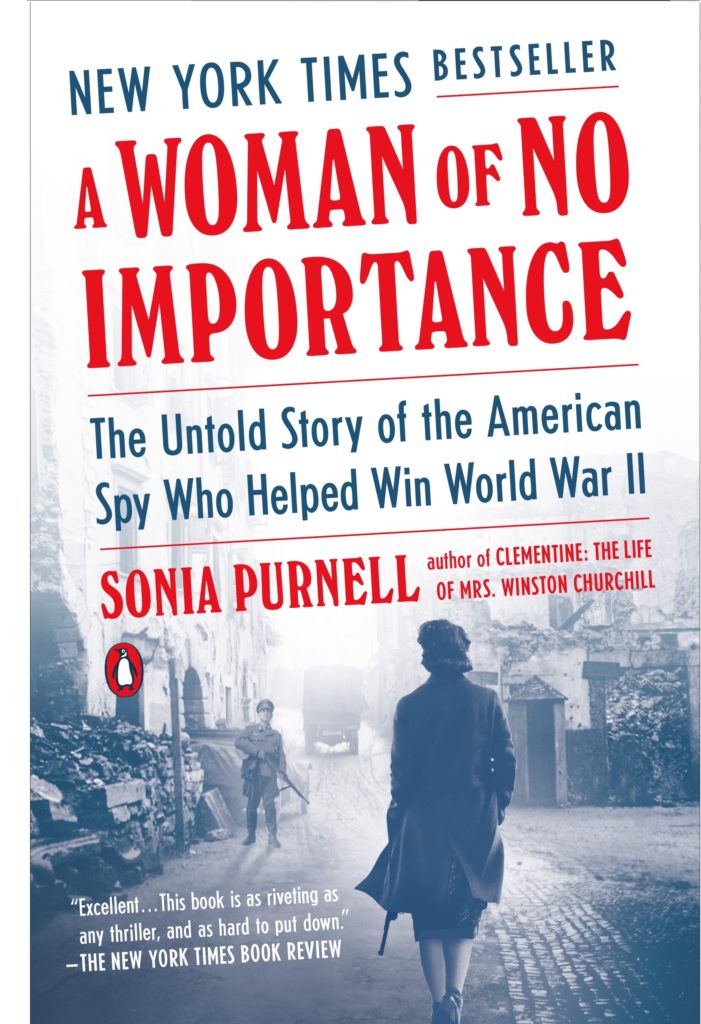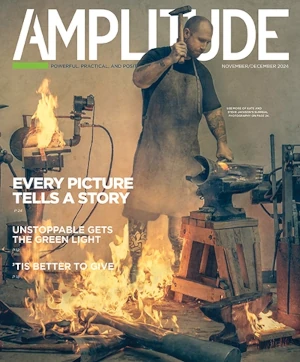Sonia Purnell explains how Virginia Hall stood fast against the Nazis—with a wooden leg.
March 24 brings the paperback release of A Woman of No Importance, Sonia Purnell’s riveting history of the LBKA spy who did spectacular work organizing the Resistance in Vichy France during World War II.
Perhaps the most harrowing passage arrives in Chapter 7, when the book’s titular heroine, Virginia Hall, must cross the Pyrenees in the dead of winter on her wooden prosthetic leg. The trail is steep and snow-packed, the Nazis are in hot pursuit, the prosthetic is disintegrating, and Hall must conceal the fact that she’s an amputee because the passeur who’s leading the way through the mountains will likely shoot her if he thinks she’s slowing down the group.
Grueling though it is, the flight through the Pyrenees isn’t Virginia Hall’s narrowest escape. The more precarious evasions occur during the year and a half she spends organizing sleeper cells in the Free Zone, while barely eluding detection by the French and German counterspies who’re trying to flush her out. They only know this much about her: she’s a woman, she walks with a limp, and she’s a devastatingly effective source of information for Britain’s Strategic Operations Executive (SOE).
“I’m pretty certain the loss of her leg is what made Virginia a great agent,” says Purnell. “The head of MI6, the secret service here in Britain, gave an interview in which he said they now deliberately recruit people who’ve had to struggle to get on in life. The organization now recognizes that those people are the ones best equipped to deal with whatever is thrown at them at the field. I found it fascinating, and it confirmed the theory I had pieced together about Virginia.”
Hall lost her lower leg more than a decade before the war, derailing what had been a promising career in the U.S. State Department. By 1941, when she entered France as an SOE agent (posing as a war correspondent for the New York Post), she’d spent more than a decade navigating straits that were decidedly unsympathetic to people with disabilities—and picking up skills that served her well in the crucible of WWII espionage.
Without further ado—and without spoiling too much of this book’s remarkable (and completely true) plot—here are five reasons Hall’s amputee status helped her succeed where dozens of able-bodied agents in France failed.
1. She was patient. Hall built her network of operatives with the long view in mind, eschewing quick transactions for sustainable wins. “She had gained qualities of forbearance and self-control after her accident,” says Purnell, noting that Hall spent many years in mundane posts that were deemed suitable for a one-legged person. Repeatedly passed over for choice assignments, she developed the habit of outlasting challenges rather than trying to outpace them. “She’d spent a long time observing rather than playing a direct part,” Purnell says, “and that made her an excellent judge of character. She had to recruit assets, and she couldn’t be sure they weren’t collaborators or informants for the Germans.” Many of her fellow agents, chasing glory, rushed into alliances that ended in betrayal. Hall considered her steps more carefully and stayed out of traps.
2. She was tough. “She was used to pain,” Purnell says. “She’d had pain every single day of her life since the accident, and she was used to the sacrifices you had to make as a result. So in a bizarre kind of way, she as a disabled person was better prepared than an able-bodied person to cope with the deprivations of wartime France, where food was scarce and even a bar of soap was a luxury.” When Hall ran out of her limited supply of medical socks for her residual limb, she simply made do without them and carried on as before, jaw clenched. “The hurdles that had been put in front of her since losing her leg,” says Purnell, “made her better able to withstand hardship than other field agents.”
3. She was independent. Purnell: “Virginia was quite isolated from other people after her accident, and she became incredibly self-sufficient. She was used to having to plow her own furrow, and I think that served her well when it really counted. You weren’t going to survive under cover if you depended on other people. You really had to be able to manage on your own. And she’d already learned to adapt, to solve her own problems, to see her way round things with great ingenuity.”
4. She was underestimated. “After her accident, she was expected to sit in a chair in the corner of a room for the rest of her life,” says Purnell. “There was real astonishment that she insisted on going back to work at all, even at a desk job.” The U.S. State Department flat-out rejected her requests for diplomatic posts on the grounds that an amputee could not do the work. Similarly, the SOE repeatedly passed her over for leadership positions in the chain of command, placing her under the supervision of field agents who invariably were able-bodied, male, and less effective than she. “London thought the commander in the field should obviously be a man as opposed to a woman, let alone a disabled woman,” Purnell says. Yet Hall used lowered expectations to her advantage, carving out a greater sphere of authority for herself in the shadows than she might have been able to under a more formal ambit.
5. She had resolve. Purnell: “She’d always been a very adventurous person who lived life to the full. I think the loss of her leg forged a new kind of steel inside her. I think Virginia wanted to prove to herself and to others that she could still do incredible, amazing things. She focused on what she could do. She could still ski, ride a bike, climb mountains. She could do pretty much anything except run. That was the one thing she couldn’t do. She went to great lengths not to make a big thing out of her condition, because she wanted to be judged in the same way as anyone else. And she not only was able to do that, but she went way beyond anyone else. The fact that someone with that setback in her life at the age of 27, to achieve those great heights, I find it utterly extraordinary.”
The paperback edition of A Woman of No Importance will be available March 24. You can pre-order a copy direct from Penguin or from our favorite online bookseller, Better World Books (where your purchase supports global literacy).




